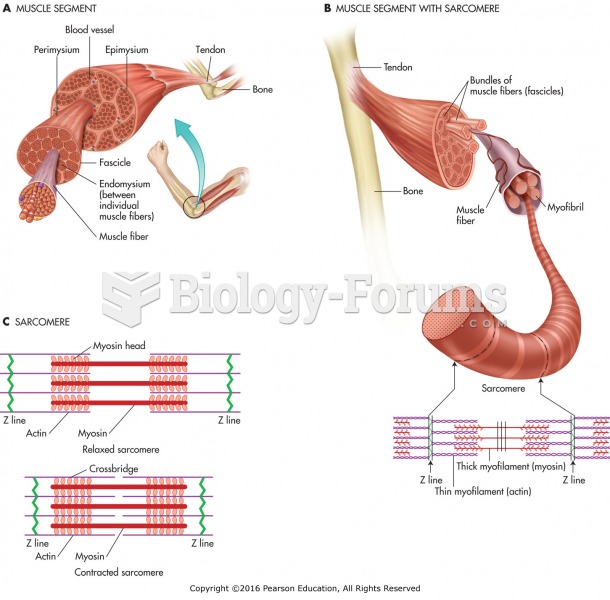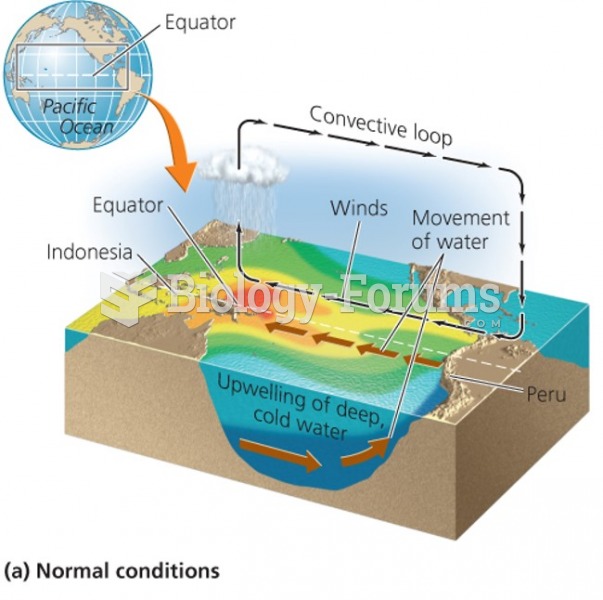|
|
|
Nearly 31 million adults in America have a total cholesterol level that is more than 240 mg per dL.
Hypertension is a silent killer because it is deadly and has no significant early symptoms. The danger from hypertension is the extra load on the heart, which can lead to hypertensive heart disease and kidney damage. This occurs without any major symptoms until the high blood pressure becomes extreme. Regular blood pressure checks are an important method of catching hypertension before it can kill you.
The most destructive flu epidemic of all times in recorded history occurred in 1918, with approximately 20 million deaths worldwide.
Medication errors are more common among seriously ill patients than with those with minor conditions.
Human kidneys will clean about 1 million gallons of blood in an average lifetime.







